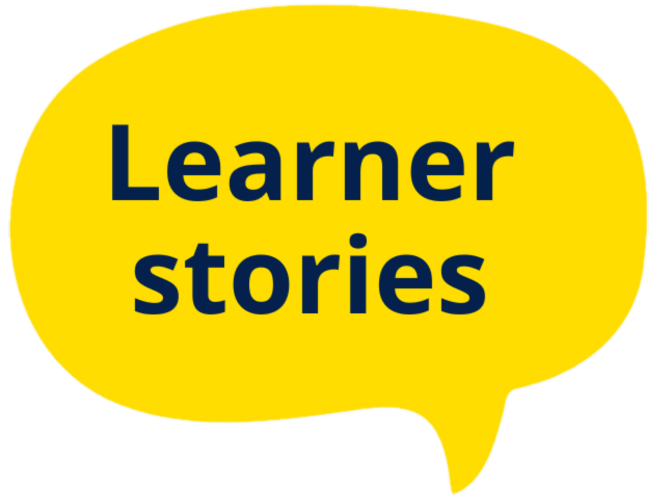Ireland
-
Community and Adult Education has played an important role in the lifelong learning sector in Ireland in the past years, as the country witnessed an increase in participation. Adult literacy remains an important topic and Ireland’s new Strategy Framework for Education and Training includes a framework for community education.
Ireland country reports
Ireland 2024-2025
Download category as PDF-
Improvements that lead to uncertainties: the fragmented situation of VET, ALE and higher education in Ireland
There have been important developments in Ireland’s adult learning and education (ALE) landscape. In recent years, policy recognition of community education has improved. In 2024, SOLAS (the national agency responsible for ALE) published a Community Education Framework aimed at achieving “consistent and positive changes in how we learn, provide, coordinate and fund community education in Ireland.” Despite this progress, many community education providers continue to face significant financial and structural challenges.Adult learning and education in Ireland falls under the responsibility of the Department of Further and Higher Education, Research, Innovation and Science. In 2024, the department received €3,618 million in funding; in 2025, this allocation increased to €3,850 million - a 6.4% rise. The department oversees higher education, vocational education and training (VET), research, and ALE.
However, much of the funding increase appears to be directed towards VET and market-oriented skills development, leaving regional and community-based ALE providers with persistent funding constraints.
EAEA's member AONTAS, the National Adult Learning Organisation of Ireland, notes that both EU and national/local funding are still inadequate to ensure the sustainable development of ALE in Ireland. The situation is particularly challenging for the private sector, and overall, most adults continue to face barriers in affording learning and training opportunities.
Skills dimension
When it comes to policymaking in Ireland and across Europe, skills for employment are often prioritised over education as a public good. As a result, formal education serving the economy and labour market tends to take precedence over learning that fosters personal development, community wellbeing, and social cohesion.
AONTAS expresses concern about the growing policy emphasis on “skills” and stresses the urgent need to reintroduce a culture of care in ALE policymaking in Ireland. The care-based model underpinning the community education sector addresses social challenges through place-based and values-led approaches. Community education offers a space for collective empowerment and social change.
AONTAS believes that current European policy, with its narrow focus on ALE for employability and “activation”, overlooks this essential dimension of adult education as a driver of inclusion, participation, and democratic resilience.
AI in adult learning
AONTAS stated it doesn’t make any use of AI due to ethical concerns.
Participation in decision-making
Although learners themselves are not included in policy-making processes, in 2024, AONTAS actively engaged in a wide range of national consultations and policy processes, contributing to evidence-based policymaking in adult and community education. Key engagements included:
- Pandemic Evaluation Meeting – On 19 February 2024, the AONTAS CEO participated in the Department of the Taoiseach Independent Pandemic Evaluation meeting.
- National Access Plan Steering Group – AONTAS contributed to meetings on 14 March and 9 May, providing input on the implementation of the National Access Plan.
- Community Education Framework Implementation Group – Ongoing participation throughout 2024.
- DFHERIS Cost of Education Event – On 11 April 2024, AONTAS facilitated the participation of 27 adult learners at the Department of Further and Higher Education, Research, Innovation and Science (DFHERIS) Cost of Education event in Portlaoise.
- SOLAS Digital Learning Working Group – The Policy and Development Officer prepared a policy paper summarising research on digital learning and attended meetings on 25 March, 23 May, and 5 December 2024.
- Pre-Budget Submission 2025 – Submitted to DFHERIS on 24 June 2024, followed by a meeting with DFHERIS officials on 16 July 2024.
- Education for Sustainable Development (ESD) Steering Group – Participated in a meeting on 12 September 2024 and submitted a report on UNECE ESD on 27 September 2024.
- College Connect Regional Steering Group – Attended meetings on 29 January, 20 May, 26 August, and 21 October 2024.
- Department of Social Protection Pre-Budget Forum – Attended on 11 July 2024 and submitted key recommendations on community education and financial support for adult learners.
- Submission to the forthcoming Women and Girls Strategy – Submitted on 14 October 2024.
- Submission to the forthcoming SOLAS FET Strategy – Submitted on 19 December 2024.
- AONTAS Manifesto – Written and published in October 2024.
- Submission on the Northern Ireland Draft Programme for Government – Submitted in 2024.
Irish member's view on the PIAAC results
AONTAS agrees that the results are representative of the situation in the country.
Funding of adult education
According to AONTAS, the funding situation of adult education in Ireland has slightly improved in 2024-2025. Although the overall financial situation has slightly improved compared to 2023, it remains insufficient to meet existing needs and regional challenges persist.
The organisation mentions multiple sources of funding, including:
- project funding
- programme funding
- operating grants/structural funding
- fees paid by individuals
- contribution paid by employers
- formula funding
- paid training leave
- donations and other philanthropic funding
Recommendation to the European Commission
AONTAS calls on the European Union to adopt a more holistic approach to adult learning and education (ALE) - one that moves beyond market-driven provision. Adult and community education are of vital importance in today’s context of rising hate, inequality, social polarisation, and persistent literacy challenges faced by many adults across Europe. ALE can and should play a central role in addressing these issues.
AONTAS recommends an increase in funding levels through the European Social Fund (ESF) and other appropriate mechanisms. Research conducted by AONTAS (Meyler et al., 2024; Meyler et al., 2023a; Meyler et al., 2023b) consistently highlights the need for targeted support to overcome barriers faced by learners at risk of marginalisation and discrimination. If ALE is to fulfil its potential in promoting social inclusion for disadvantaged learners, greater investment in wraparound supports - such as childcare, transport, and tailored guidance, is essential. The EU should explore how it can help Member States provide and sustain such support.
Finally, AONTAS urges the European Union to ensure meaningful adult learner participation in policy development. Establishing a European Adult Learner Forum that directly contributes to policy design and implementation would represent a crucial step toward more inclusive and learner-centred governance in adult education.
DISCLAIMER ON THE PARTICIPATION IN EDUCATION AND TRAINING DATA: the data focuses on formal and non-formal education and training, excluding guided on-the-job training. Participation is higher when on-the-job training is included. Data coming from sources such as OECD and the monitoring framework of the European Pillar of Social Rights may differ from the presented data.
Ireland 2023
Download category as PDF-
Adult learning is making an impact, but equitable access to learning requires stable funding
Posted: 2023-12-11 / Category: Ireland 2023 / Tags: sustainable development accessibility funding community learner voice
Ireland 2021
Download category as PDF-
Developments: Educational inequality has increased
Posted: 2021-12-21 / Category: Ireland 2021 / Tags: advocacy sustainable development funding covid-19 CONFINTEA -
Challenges: Risk for permanent setback in participation in adult learning
Posted: 2021-12-21 / Category: Ireland 2021 / Tags: vulnerable learners community social inclusion covid-19
Ireland 2020
Download category as PDF2019
Download category as PDF-
Ireland introduction
Posted: 2020-01-09 / Category: 2019 / Tags: employability -
Recent developments in Ireland
-
Links to EU and international policy in Ireland
Posted: 2020-01-09 / Category: 2019 / Tags: sustainable development lifelong learning upskilling pathways -
Challenges and recommendations in Ireland
Posted: 2020-01-09 / Category: 2019 / Tags: non-formal learning community
Learner stories from Ireland
Download category as PDF-
Kayla: "I was treated like an adult with lived experiences and opinions."
Posted: 2023-12-15 / Category: Learner stories from Ireland / Tags: learner voice learner storyKayla, 25, Student
"I left school at the start of my sixth year without completing my Leaving Certificate (the end of secondary school exam in Ireland) due to illness and the fact my school never adequately put support for me to conti...
-
Deborah: "I am here, and I belong here, I am a part of something."
Posted: 2023-12-15 / Category: Learner stories from Ireland / Tags: learner voice learner storyDeborah, 43, Postgraduate student in Advanced Family Law, UCC
"I believe my journey to recovery started in a coffee group at the Cork Migrant Centre because apart from just going and sharing as a migrant woman, they also offer short c...















































